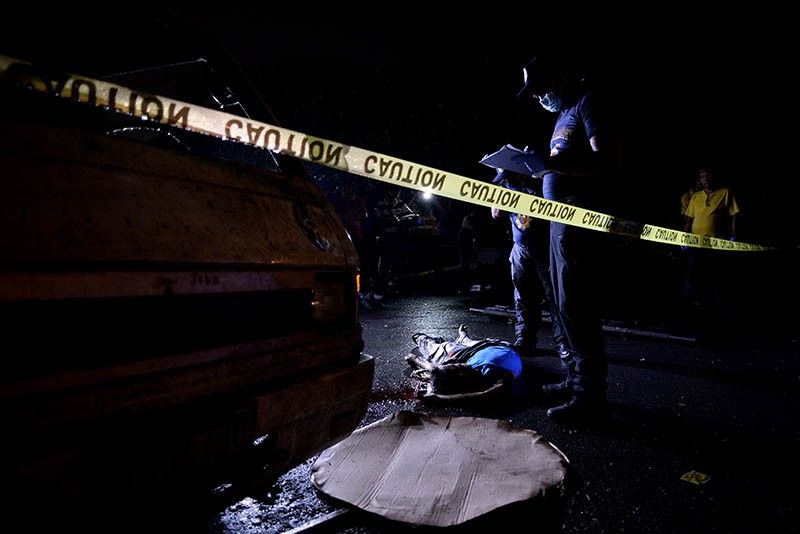Palace: 'Grotesquely sensationalized' deaths to blame for EJK fears

'For the umpteenth time, we do not tolerate EJKs nor knowingly allow them to happen'
MANILA, Philippines — The Palace on Monday said the government does not tolerate extrajudicial killings and blamed survey results showing Filipinos are worried of being summarily killed on reports of drug-related killings that it claimed are "grossly inflated" and "grotesquely sensationalized."
The statement was in reaction to a Social Weather Stations poll conducted last December that suggests 78 percent of Filipinos are worried that they or someone they know would become victims of extrajudicial killings. The figure was up from 73 percent in June 2017.
In the same survey, only 22 percent said they are not worried, down from 27 percent previously.
"We understand this concern of our people given the grossly inflated number of drug-related killings falsely peddled and grotesquely sensationalized by the incorrigible critics of the government’s campaign against prohibited drugs," Panelo said.
RELATED: Philippine Embassy decries Washington Post feature on drug war victim | HRW: Drug war, attacks vs critics 'deepened' rights crisis in Philippines
The government acknowledges the deaths of 5,176 "drug personalities" in 119,841 anti-narcotics operations since July 1, 2016. Authorities say all of those "personalities" were killed while allegedly violently resisting arrest, now referred to as "nanlaban" (they fought back).
Human rights advocates as well as the political opposition attribute a higher number of casualties to the government's campaign against illegal drugs. The government says other deaths—sometimes referred to as "deaths under investigation" or as "homicides under investigation"—were the work of drug syndicates and vigilantes.
READ: Nanlaban’ survivor wins drug case
Last week, SWS also released results of its December survey that suggested 58 percent of respondents believe the accusation that police officers often plant evidence against suspects they arrest. Thirty-three percent were undecided, while the remaining nine percent said the claim is “definitely or probably not true.”
The poll found that 28 percent of adult Filipinos do not believe police claims that killed drug suspects fought back, while another 28 percent said police are telling the truth. The plurality of 44 percent were undecided.
Panelo: Killings not government policy
Last month, President Rodrigo Duterte said his war on drugs would be “harsher” and “bloodier” in the coming days, even as he conceded that "nobody can solve it [drug problem] in due time."
Panelo in his statement on Monday said: "For the umpteenth time, we do not tolerate EJKs nor knowingly allow them to happen. EJKs and vigilante killings are not State-sanctioned nor State-sponsored."
"The president’s position on any abuse committed by police officers and [Philippine Drug Enforcement Agency] agents during their operations remains unchanged and immovable . Any transgression by them will reap the severest punishment imposed by law," he also said.
On Sunday, Panelo said in a radio interview in Filipino that the worry "should not come as a surprise" since drug suspects do get killed in buy-bust operations and raids. "But if they (the public) are not involved, they do not have to be afraid."
Killings, bounties
The government has repeatedly denied that the killings are a government policy. President Duterte has however repeatedly talked about killing drug pushers and drug lords. He has also talked about "bounties" for drug trade protectors.
"I think those who are engaged in kidnap here and there, either it’s the Ninja police or the scalawags. So the good practice may be against the ninja cops, I will now raise the amount of P5 million per Ninja cop," he said in August 2018. "Ninja" cops refer to police officers allegedly involved in the drug trade.
"If you bring him to me dead, I’ll give you (five million), no questions asked or three million. If (the Ninja cop) is still alive, I will give you P10,000 and a kick in the butt as you go out," Duterte also said.
The Palace has said that Duterte's statements should be taken seriously but are not necessarily policy statements.
- Latest
- Trending






























